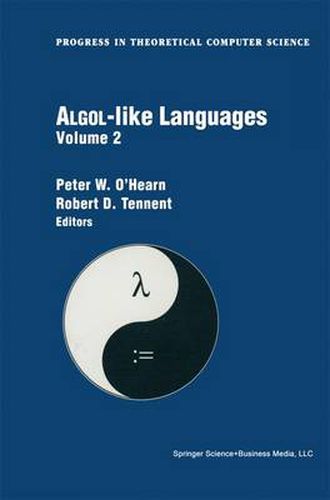Readings Newsletter
Become a Readings Member to make your shopping experience even easier.
Sign in or sign up for free!
You’re not far away from qualifying for FREE standard shipping within Australia
You’ve qualified for FREE standard shipping within Australia
The cart is loading…






This title is printed to order. This book may have been self-published. If so, we cannot guarantee the quality of the content. In the main most books will have gone through the editing process however some may not. We therefore suggest that you be aware of this before ordering this book. If in doubt check either the author or publisher’s details as we are unable to accept any returns unless they are faulty. Please contact us if you have any questions.
To construct a compiler for a modern higher-level programming languagel one needs to structure the translation to a machine-like intermediate language in a way that reflects the semantics of the language. little is said about such struc turing in compiler texts that are intended to cover a wide variety of program ming languages. More is said in the Iiterature on semantics-directed compiler construction [1] but here too the viewpoint is very general (though limited to 1 languages with a finite number of syntactic types). On the other handl there is a considerable body of work using the continuation-passing transformation to structure compilers for the specific case of call-by-value languages such as SCHEME and ML [21 3]. ln this paperl we will describe a method of structuring the translation of ALGOL-like languages that is based on the functor-category semantics devel oped by Reynolds [4] and Oles [51 6]. An alternative approach using category theory to structure compilers is the early work of F. L. Morris [7]1 which anticipates our treatment of boolean expressionsl but does not deal with procedures. 2 Types and Syntax An ALGOL-like language is a typed lambda calculus with an unusual repertoire of primitive types. Throughout most of this paper we assume that the primi tive types are comm(and) int(eger)exp(ression) int(eger)acc(eptor) int(eger)var(iable) I and that the set 8 of types is the least set containing these primitive types and closed under the binary operation -.
$9.00 standard shipping within Australia
FREE standard shipping within Australia for orders over $100.00
Express & International shipping calculated at checkout
Stock availability can be subject to change without notice. We recommend calling the shop or contacting our online team to check availability of low stock items. Please see our Shopping Online page for more details.
This title is printed to order. This book may have been self-published. If so, we cannot guarantee the quality of the content. In the main most books will have gone through the editing process however some may not. We therefore suggest that you be aware of this before ordering this book. If in doubt check either the author or publisher’s details as we are unable to accept any returns unless they are faulty. Please contact us if you have any questions.
To construct a compiler for a modern higher-level programming languagel one needs to structure the translation to a machine-like intermediate language in a way that reflects the semantics of the language. little is said about such struc turing in compiler texts that are intended to cover a wide variety of program ming languages. More is said in the Iiterature on semantics-directed compiler construction [1] but here too the viewpoint is very general (though limited to 1 languages with a finite number of syntactic types). On the other handl there is a considerable body of work using the continuation-passing transformation to structure compilers for the specific case of call-by-value languages such as SCHEME and ML [21 3]. ln this paperl we will describe a method of structuring the translation of ALGOL-like languages that is based on the functor-category semantics devel oped by Reynolds [4] and Oles [51 6]. An alternative approach using category theory to structure compilers is the early work of F. L. Morris [7]1 which anticipates our treatment of boolean expressionsl but does not deal with procedures. 2 Types and Syntax An ALGOL-like language is a typed lambda calculus with an unusual repertoire of primitive types. Throughout most of this paper we assume that the primi tive types are comm(and) int(eger)exp(ression) int(eger)acc(eptor) int(eger)var(iable) I and that the set 8 of types is the least set containing these primitive types and closed under the binary operation -.